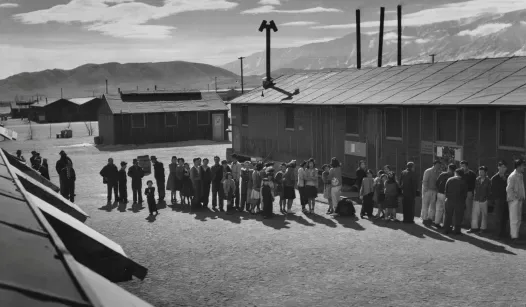The internment of Japanese Americans during World War II remains a profound chapter in U.S. history, marking a significant moral and constitutional failure that extends beyond President Franklin D. Roosevelt’s administration. As we approach the 80th anniversary of this dark period, it is crucial to reflect on the broader implications of these actions and their lasting impact on civil rights in America.
In 1942, shortly after the attack on Pearl Harbor, the U.S. government forcibly relocated and incarcerated approximately 120,000 Japanese Americans, two-thirds of whom were U.S. citizens. This decision, driven by fear and prejudice, was justified at the time as a national security measure. However, it was a blatant violation of the civil liberties guaranteed by the Constitution. The internment camps, often located in desolate areas, stripped individuals of their homes, businesses, and dignity, leaving a lasting scar on the affected communities.
The failure to protect the rights of Japanese Americans was not an isolated incident; it reflected a broader societal issue of racial discrimination and scapegoating during times of crisis. The government’s actions were supported by a mix of political rhetoric, media sensationalism, and public fear, creating an environment where prejudice could thrive. This historical injustice serves as a reminder of the fragility of civil rights, especially for marginalized communities.
As we commemorate this anniversary, it is important to acknowledge the resilience of those who were interned. Many Japanese Americans emerged from this experience with a renewed commitment to civil rights activism. Organizations such as the Japanese American Citizens League (JACL) have played a pivotal role in advocating for redress and raising awareness about the injustices faced by their community. In 1988, the U.S. government formally acknowledged the wrongs of internment, issuing a public apology and providing reparations to surviving internees. This acknowledgment was a significant step toward healing, but the struggle for justice continues.
The legacy of Japanese internment also resonates in contemporary discussions about civil liberties, particularly in the context of national security. The events of 9/11 and the subsequent treatment of Muslim Americans have drawn parallels to the internment era. History has shown that fear can lead to the erosion of rights for vulnerable populations, making it imperative for us to remain vigilant in protecting civil liberties for all.
As we reflect on the past, it is essential to educate future generations about the lessons learned from Japanese internment. Incorporating this history into school curricula and public discourse can foster a deeper understanding of the importance of tolerance, empathy, and the protection of civil rights. By remembering this chapter in our history, we can work towards ensuring that such injustices are never repeated.
In conclusion, the 80th anniversary of Japanese internment serves as a critical moment for reflection and education. It reminds us of the moral and constitutional failures that can occur in times of crisis and the importance of standing up for the rights of all individuals. As we honor the resilience of those who endured this injustice, let us commit ourselves to safeguarding civil liberties and promoting a more inclusive society for future generations.
